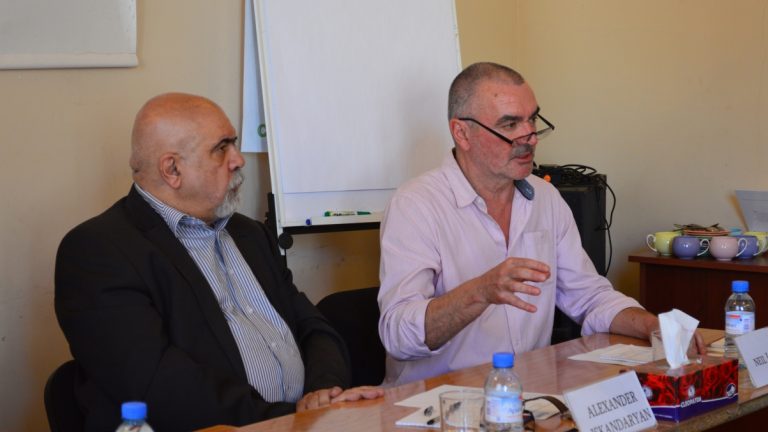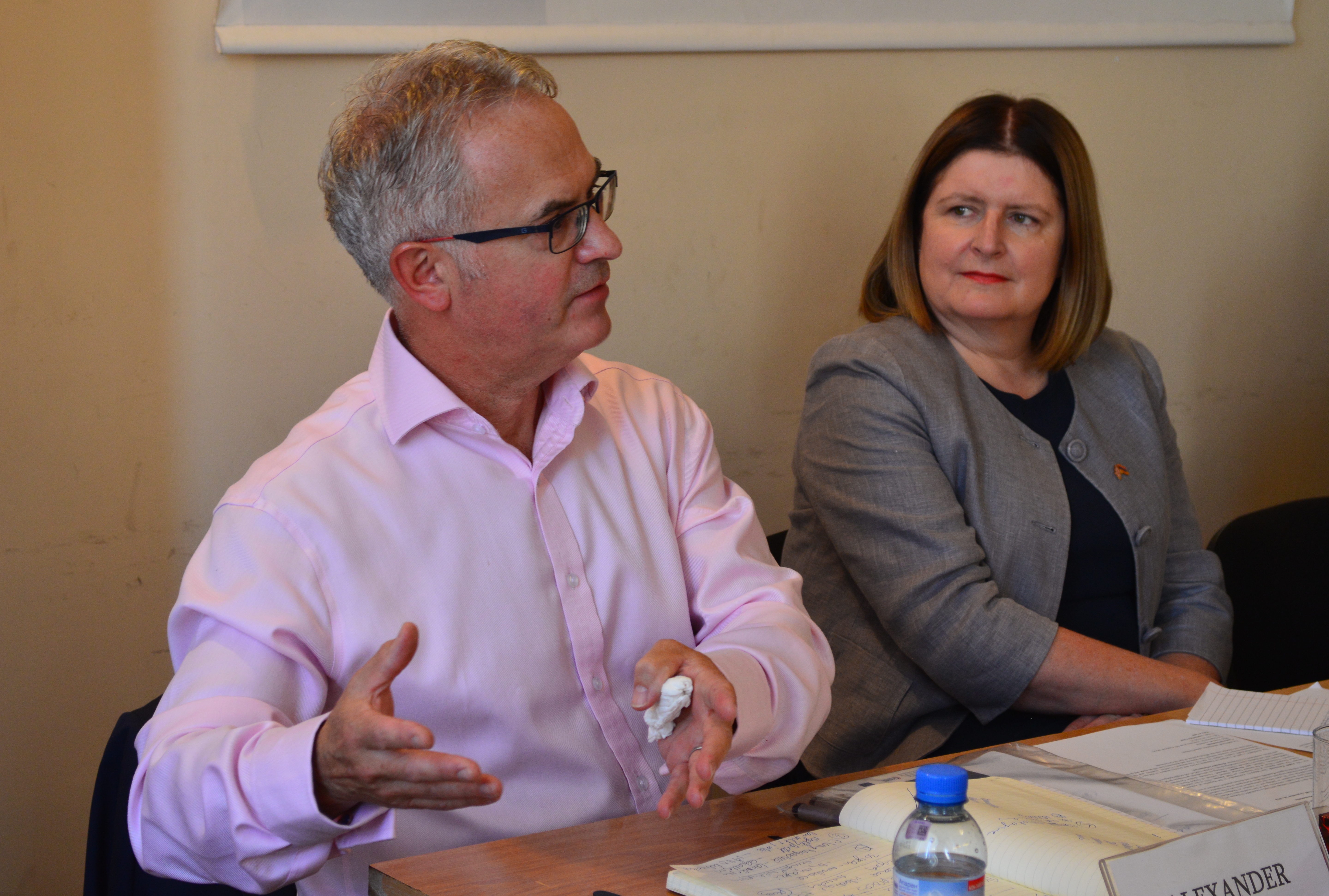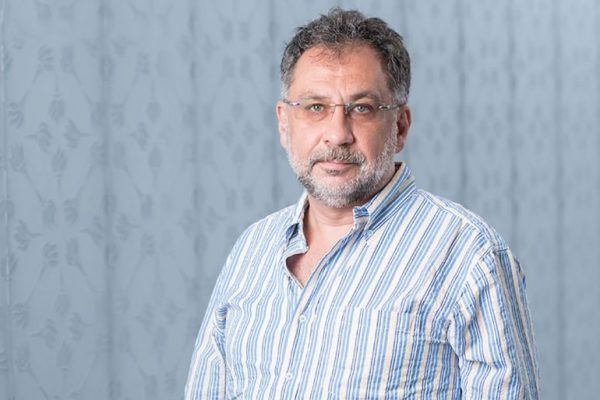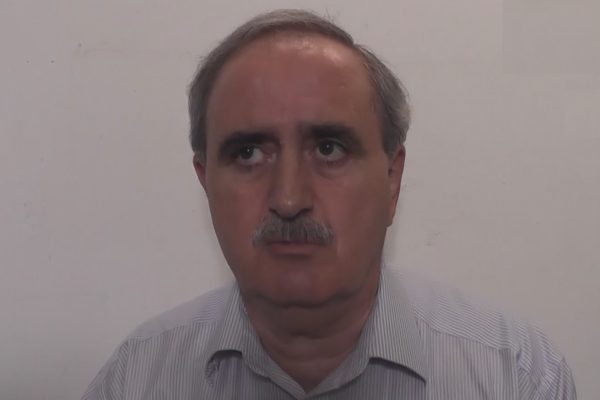After peace was established in Northern Ireland in 1998 putting an end to decades of violence the society faced a different type of challenges. Neil Jarman, CEO of the Institute of Conflict Research based in Belfast since 1996 thinks that their essence has been actually implementing the key strands of the agreement.
He believes that some of them such as police reform or demilitarization were done relatively easily. While others around establishing a political system or a local government have been much more challenging.
“They’ve been periods when the political parties would not work together in government. There was only in 2007 when we got the government up and running, but in 2017 it collapsed”, he recalls.
Jarman sees the main reason for this in the fact that the society in Northern Ireland is still very divided. It has agreed not to keep shooting but there is no real consensus on what people want with half of the population wanting to be a part of the United Kingdom and the other half wanting to be part of United Ireland. “We have very strong divisions- political parties are from one ethnic community or the other, people go to segregated schools, they live in segregated areas- Catholics live in one area, Protestants live in another area, so it’s still very heavily segregated society and we’ve not really yet been able to address those very deep divisions”, he regrets.
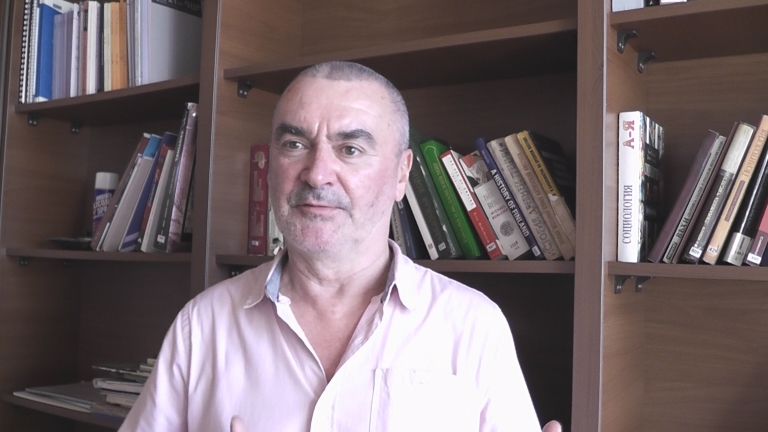
Is a Pullback Possible?
While speaking about the deep divisions within the Northern Irish society a question arises whether there is any, even smallest possibility of a pullback to the military phase of the conflict.
“There are certain scenarios that I could see in the future, in immediacy- no”, answers Neil Jarman adding that the factors that led to the military conflict such as the discrimination or the inequalities, have been addressed, and there’s no appetite, no support and no conditions for armed conflict.
However, one of the recent issues that affected the long-established balance within the society is Brexit which is a different issue in Northern Ireland from other parts of the UK because of the border. Jarman considers one of the successes of the peace process making the border virtually irrelevant making it much more of an administrative than a national border which people could cross without knowing they really crossed it. But now it’s become a real issue.
“The majority of people in Northern Ireland voted to remain in the EU, but probably the majority of Protestants voted to leave, and Catholics voted to stay. So it’s opened up the divisions and it’s opened up questions about whether Northern Ireland should join the United Ireland rather than remain in the UK”.
Thus, the Brexit referendum brought the issue of the border which was dead for a long time back to life. “And I can see a scenario where that starts to become much more of an issue, the possibility that Northern Ireland going into United Ireland because nearly half of the people will not support it” sums up Neil Jarman.
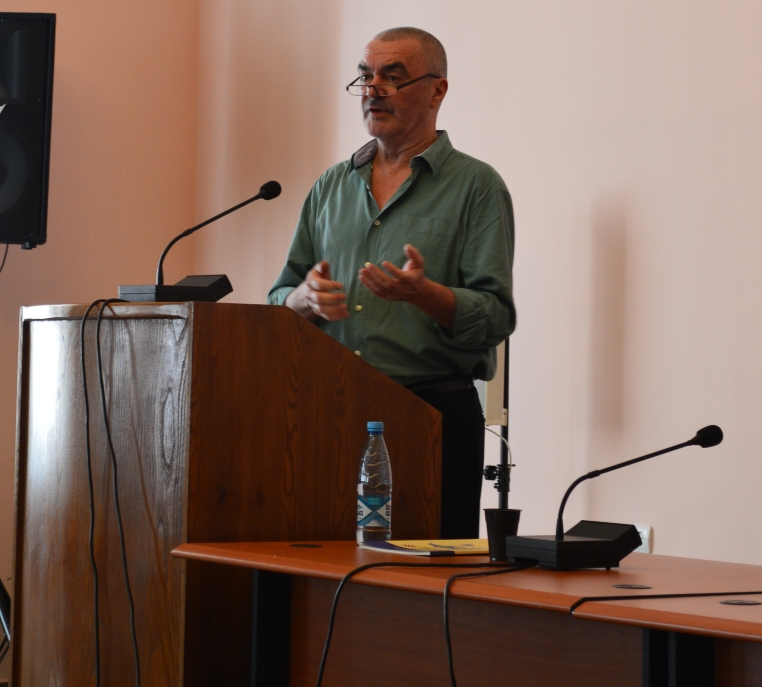
Lessons to Be Learned
In spite of the divisions within the Northern Irish society that deepened after the Brexit referendum, there are definitely certain lessons to be learned from its experience of addressing a sustained conflict.
Neil Jarman puts forward the three and a half years of heavy negotiations and political discussions that preceded the peace agreement of 1998 and a lot of peace-building work, dialoge and discussions that started long before that.
“I think, you can say – moving from a conflict to peace takes a long period of time. And if you’re going to sustain it, you need to be committed to that process, you need to be willing to engage in dialogue with people, and you need to make sure the process is inclusive, that everybody has a chance to speak and to be heard”, he says.
The expert stresses that being selective and keeping people out will create problems at some stage. So, the kind of lessons to be learned from Northern Ireland according to Jarman are being committed, understanding that it’s going to take a long time and talking to everybody without excluding people. “Just stay with it and you will get there in the end”, he believes.
The visit of Neil Jarman to Armenia in September 2018 was part of a project on Engaging society and decision-makers in dialogue for peace over the Nagorno-Karabakh conflict implemented by the Caucasus Institute and funded by the UK Government’s Conflict, Stability and Security Fund. The opinions and statements that are made by the speaker may not coincide with the official position of the UK Government.

